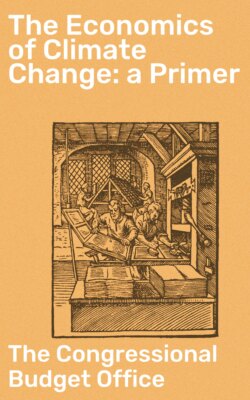Читать книгу The Economics of Climate Change: a Primer - The Congressional Budget Office - Страница 5
На сайте Литреса книга снята с продажи.
Common Resources: Addressing a Market Failure
ОглавлениеTable of Contents
The Earth’s atmosphere is a global, open-access resource that no one owns, that everyone depends on, and that absorbs emissions from an enormous variety of natural and human activities. As such, it is vulnerable to overuse, and the climate is vulnerable to degradation—a problem known as the tragedy of the commons. The atmosphere’s global nature makes it very difficult for communities and nations to agree on and enforce individual rights to and responsibilities for its use.
With rights and responsibilities difficult to delineate and agreements a challenge to reach, markets may not develop to allocate atmospheric resources effectively. It may therefore fall to governments to develop alternative policies for addressing the risks from climate change. And because the causes and consequences of such change are global, effective policies will probably require extensive cooperation among countries with very different circumstances and interests.
However, governments may also fail to allocate resources effectively, and international cooperation will be extremely hard to achieve as well. Developed countries, which are responsible for the overwhelming bulk of emissions, will be reluctant to take on increasingly expensive unilateral commitments while there are inexpensive opportunities to constrain emissions in developing countries. But developing nations, which are expected to be the chief source of emissions growth in the future, will also be reluctant to adopt policies that constrain emissions and thereby limit their potential for economic growth—particularly when they have contributed so little to the historical rise in atmospheric greenhouse gas concentrations and may suffer disproportionately more of the negative effects if nothing is done.
